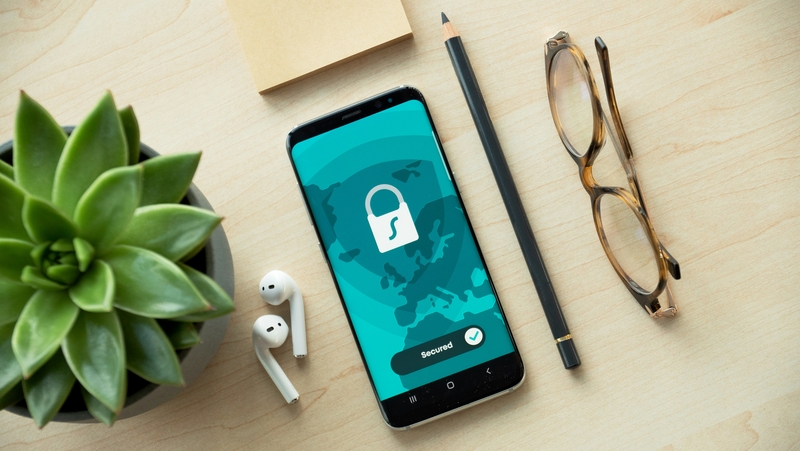
Let’s be real, remembering passwords is a pain. Between your banking login, streaming subscriptions, social media, and that one weird app you downloaded last summer, it’s a lot to keep up with. And if you’re like most people, you probably reuse a few passwords just to keep things simple. But here’s the problem: hackers love that. And in 2025, cybersecurity threats are getting smarter and sneakier.
So, what’s the fix? A good password manager. The right one will store all your passwords securely, help you generate stronger ones, and make logging in a breeze, no memory games required.
In this guide, we’ll break down the top 5 types of password managers to consider in 2025. No sales pitches. No confusing tech jargon. Just clear, straightforward info to help you stay safe online without overthinking it.
Why do password managers still matter in 2025?
Because digital threats aren’t slowing down, they’re leveling up.
According to recent cybersecurity reports, over 80% of data breaches are still tied to weak or reused passwords. That stat hasn’t changed much in years, and with AI-powered scams and phishing attacks on the rise, password protection is more important than ever.
Even with all the talk of biometrics and passkeys, the password isn’t dead. Most sites still rely on good old text-based passwords. So, unless you plan on abandoning the internet (and good luck with that), a password manager is your best defense.
What features should you look for in a password manager?
Here’s what separates a solid password manager from just another app on your phone:
- End-to-end encryption – This means your passwords are locked down, even from the company providing the service.
- Multi-device syncing – Your logins should follow you from your laptop to your phone to your tablet.
- Auto-fill and password generator – No more typing in complicated strings or thinking up clever phrases.
- Two-factor authentication (2FA) support – A second layer of security, just in case.
- Zero-knowledge architecture – Basically, even the company can’t access your data. Only you hold the keys.
Nice-to-haves include things like:
- Secure password sharing (great for families or coworkers),
- Emergency access (so someone you trust can get in if needed),
- Security reports that flag weak or reused passwords.
How did we evaluate the top 5 types?
We kept it practical. Here’s what we considered:
- Security – Are they using the latest encryption standards?
- Usability – Can regular folks (not just techies) figure it out?
- Compatibility – Works across iPhones, Androids, Macs, PCs, Chrome, Firefox, Safari—you name it.
- Affordability – Offers value without breaking the bank.
- Privacy – No shady data harvesting.
- Support – Fast, helpful answers when you need them.
We didn’t name-drop specific brands, but instead focused on types of password managers that fit different lifestyles and needs. Let’s get into it.
1. What’s the best password manager for simplicity and ease of use?
If you’re someone who just wants to log in and move on, look for a manager who prioritizes a clean interface and minimal steps.
These are designed for people who don’t want to tinker with settings or learn about encryption algorithms. You open the app, type in your master password, and boom, everything’s there. They usually include autofill, password suggestions, and syncing between your phone and computer.
Ideal for: retirees, busy parents, students, or anyone who hates overcomplicating things.
2. Which password manager has the most advanced security features?
If you’ve been hacked before, or you just don’t want to take any chances, go for a manager who leans into high-level protection.
This type supports things like hardware key integration, biometric unlocks, and even vault segmentation, which keeps your logins grouped and separated by category or purpose. They’re also more likely to flag potential phishing sites or alert you to breached passwords.
These might feel more complex to set up, but once you’re in, they’re super solid.
Perfect for: small business owners, freelancers handling client data, or anyone storing sensitive info.
3. What’s the most compatible password manager for multiple devices?
Let’s say you work on a Windows PC at the office, use an iPhone on the go, and relax on a Chromebook at home. You need something that plays nicely across all platforms and syncs smoothly.
These managers excel at being everywhere you are. They work inside browsers, have apps for every operating system, and can even be used offline when needed. Seamless syncing means no more wondering if your laptop knows the password you just updated on your phone.
Best for: remote workers, students, hybrid employees, or anyone bouncing between multiple devices.
4. Which password manager is best for families or shared access?
If you’ve ever had a family group text where someone asks, “What’s the Wi-Fi password again?”, you need this type.
These password managers are built for collaboration and control. You can create shared folders, assign access levels, and even monitor who’s changing what. That means your partner can handle the Netflix login while you manage the online banking.
Great for: households, co-parents, or even small teams working on joint projects.
5. What’s the best free password manager in 2025?
Yes, there are free options that are still safe and reliable.
These usually cover the basics, password storage, autofill, and syncing across one or two devices. You won’t get all the bells and whistles, but for someone just trying to stay a little safer online, that’s fine.
Many paid services also offer limited free tiers that let you try before you commit. Just be sure to check for limitations like how many passwords you can store or devices you can use.
Perfect for: students, folks on a budget, or anyone testing the waters.
How do you choose the right password manager for you?
Ask yourself a few quick questions:
- How many devices do I use daily?
- Do I need to share passwords with anyone?
- Am I looking for something simple or super secure?
- Do I want to pay, or would a free version be enough?
There’s no one-size-fits-all answer here. The best choice depends on your lifestyle and how much digital stuff you’re juggling. Most password managers offer free trials, so test a few and see what clicks.
And don’t overthink it, using any password manager is better than using none.
Why you should make the switch today
Still relying on sticky notes or using “password123”? You’re not alone, but that doesn’t mean it’s safe. Cybercriminals count on it. A strong, regularly updated password manager is one of the easiest ways to protect yourself online without lifting much of a finger.
And with so many user-friendly options out there, there’s no excuse not to give one a try.
FAQ: Password Managers in 2025
What is the best way to store passwords in 2025?
Using a password manager with strong encryption, multi-device support, and two-factor authentication is the safest, most efficient way.
Are free password managers safe?
Yes, many free options are secure. Just check for things like encryption, device limits, and the provider’s privacy policy.
Can I use the same password manager for work and personal accounts?
Absolutely. Most managers let you organize passwords by folders or tags, so you can keep things separated but accessible.
What happens if I forget my master password?
Some managers offer recovery options, but not all. Choose one with account recovery or emergency access, just in case.
Do password managers work on iPhone and Android?
Yes. Most modern password managers offer apps for both iOS and Android with syncing across devices.
Final thoughts
Cybersecurity might seem complicated, but it doesn’t have to be. A good password manager gives you peace of mind without the tech headache. Whether you need something simple, secure, or shareable, there’s a tool out there that fits your life.
So go ahead, ditch the notebook, forget the sticky notes, and give your brain a break. Your future self (and your data) will thank you.👉 Ready to take control of your passwords?
Start by making a list of your most important accounts, and try out a free version of a password manager that fits your needs. You’ve got nothing to lose, and a lot of digital safety to gain.






